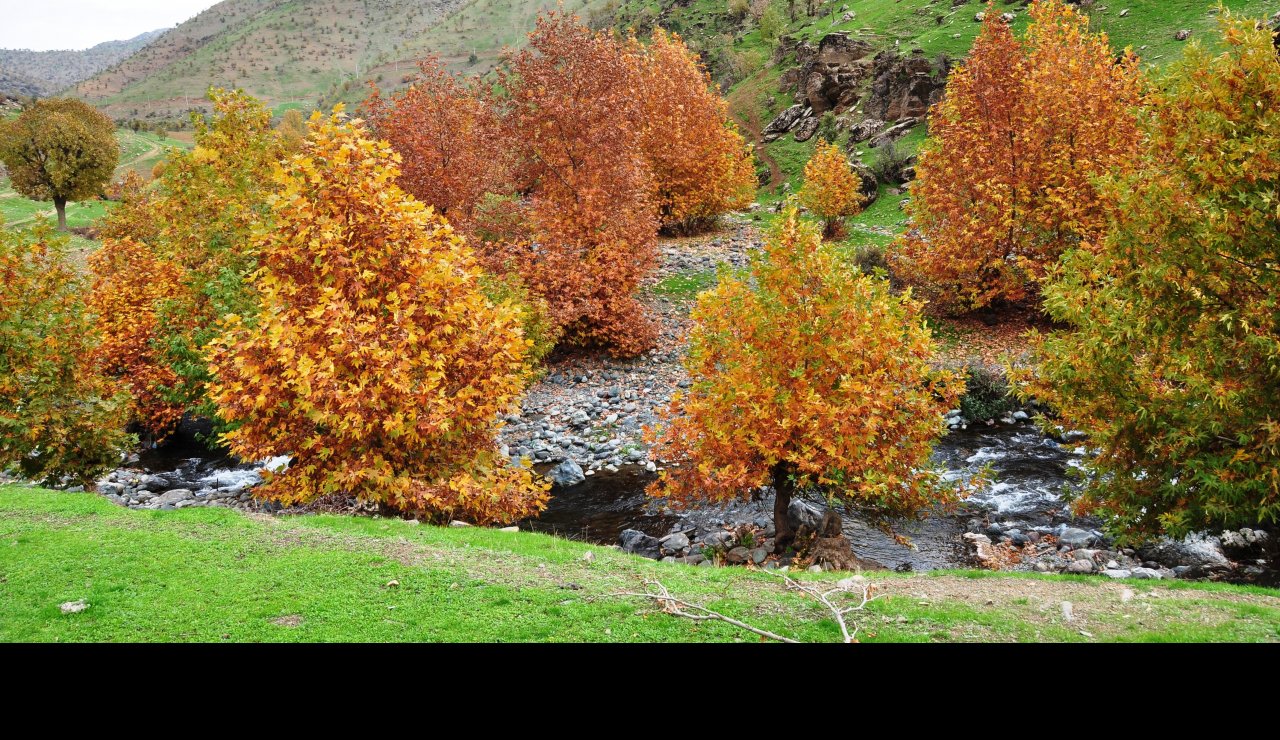Kurdish heritage is rooted in one of the world's oldest cultures. The earliest known evidence of a unified and distinct culture (and, possibly, ethnicity) of the inhabitants of the Kurdish mountains dates back to the Halaf culture of 5400 - 6000 B.C. This was followed which was a foreign introduction from Mesopotamia.
Kurds consider themselves Indo-European descendants of the Guti, Hattians, Kassites, Mitanni, Mannai, Urartu, and Mushku groups. All of these peoples shared a common identity and spoke one language or closely related languages or dialects. According to the Encyclopedia Kurdistanica, Kurds are the descendants of all those who settled in Kurdistan historically, not of any one particular group. Those ancestors include the Guti (Kurti), Mede, Mard, Carduchi (Gordyaei), Adiabene, Zila and Khaldi.
This heritage has been subject to injustices, neglect and repression, or has been eclipsed by other cultures. Important components of the Kurds' original cultural heritage have disappeard or have been destroyed. There are numerous examples of how valuable or irreplaceable Kurdish physical heritage has been endangered or destroyed, such as the threat posed by the Illusi Dam in Turkey, where the ancient Kurdish city of Hasankeyf could soon be covered by water.
Key dates:
- 21st March: Nawroz, Kurdish New Year celebrated on the Spring equinox.
- 5th March 1991: Uprising against Saddam Hussein's regime, which began in the town of Rania.
- 14th March 1903: Birthday of Mustafa Barzani, leader of Kurdistan's national democratic movement.
- 16th March 1988: Halabja Day, commemoration of the chemical weapons bombardment on the city Halabja.
- 14th April: Commemoration of the Anfal genocide campaign against the Kurds.
National holidays:
- Weekends: (Friday or Saturday)
- 1st January: New Year's Day
- 6th January: Army day
- 24th January: Mouloud (Prophet Mohammad's Birthday)
- 5th March: Uprising Day (liberation of Ranya City)
- 11th March: Liberation of Erbil City
- 14th March: Mustafa Barzani's Birthday
- 21st March: Nawroz Kurdish New Year (Spring equinox)
- 9th April: Baghdad Liberation Day
- 1st May: Labour Day
- 14th July: Republic Day
- 7th - 9th August: Eid-al-Fits Feast (End of Ramadan. Estimated; according to lunar calendar)*
- 14th - 17th October: Eid al-Qurban Feast*
- 4th November: Muharram (Islamic New Year)*
- 13th November: Ashura*
- 25th December: Christmas Day
(*) The dates of these religious holidays may change every year.












